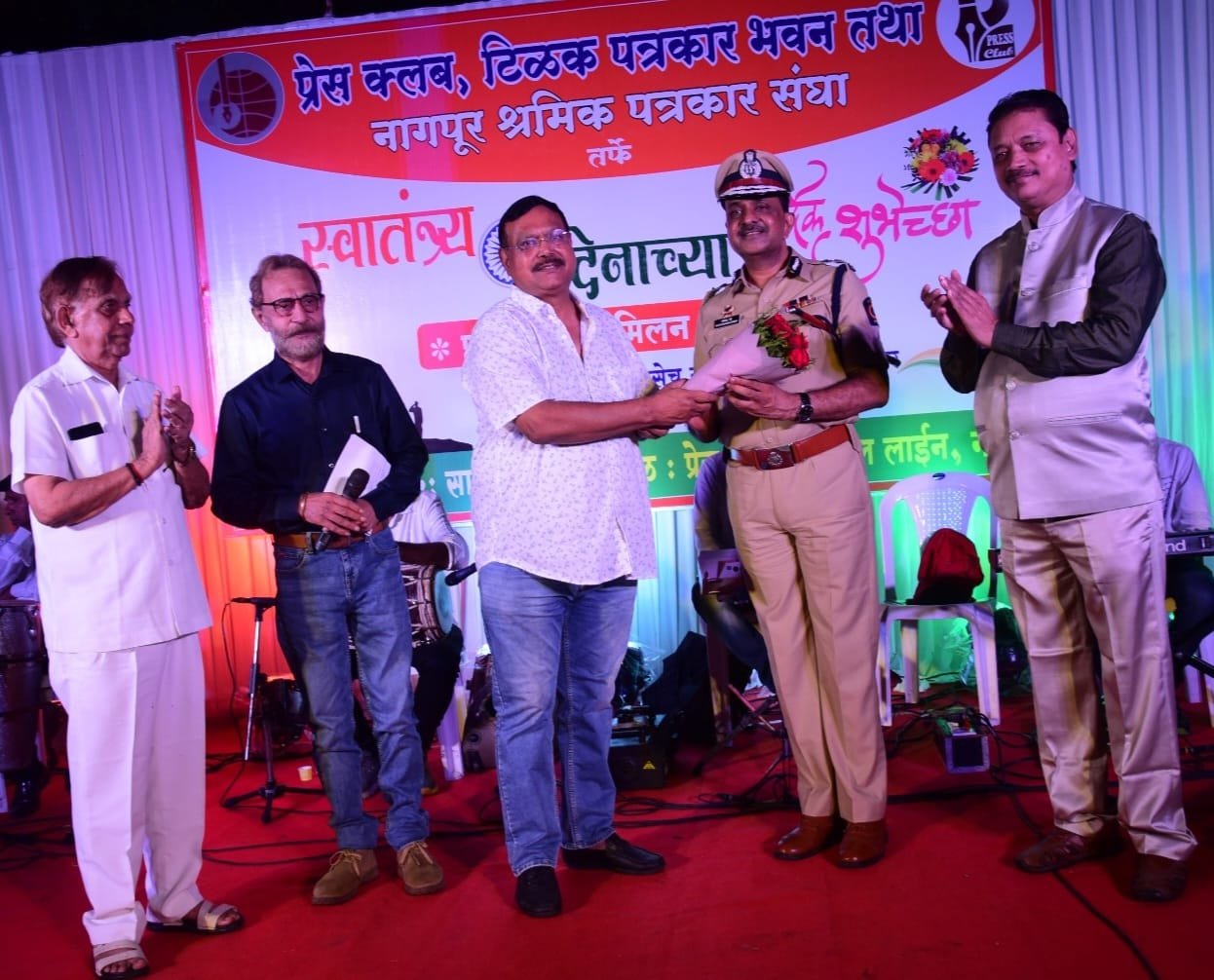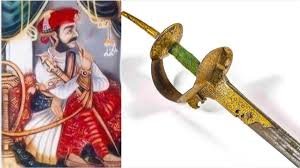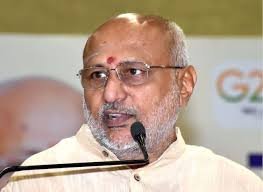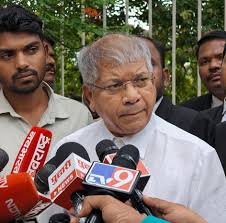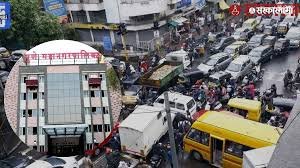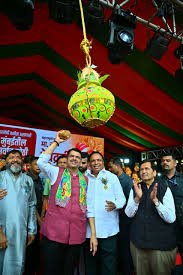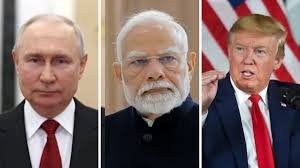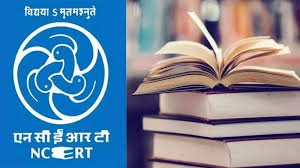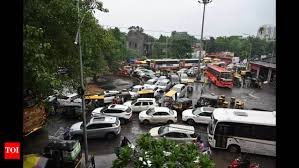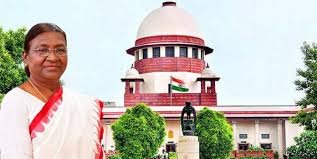
Centre opposes setting time limit for President and Governor to take decisions, cites 'division of powers' in reply filed in Supreme Court
Delhi:-The Central Government has filed a reply in the Supreme Court before the hearing on setting time limit for President and Governor to take decisions. A bench of 5 judges will hear the reference sent by the President from 19th August. In its reply, the Centre has mentioned the division of powers made for every part of the system in the Constitution.
10 bills of Tamil Nadu government were approved
In April this year, a bench of 2 judges of the Supreme Court had given its approval to 10 bills of Tamil Nadu government pending with the Governor and the President. The court had also set a time limit for the Governor or the President to take a decision. The court had said that if they do not take a decision within the stipulated time, the state government can come to the court.
The President had sent 14 questions to the Supreme Court
The President had sent 14 questions to the Supreme Court regarding this decision of the Supreme Court. Chief Justice BR Gavai has constituted a bench of 5 judges under his chairmanship to hear them, its other members are - Justice Surya Kant, Justice Vikram Nath, Justice PS Narasimha and Justice AS Chandurkar.
Hearing will begin from August 19
The hearing will begin on August 19. Both sides will get a chance to speak for 4 days each. The hearing will be completed on September 10. In a detailed reply of 93 pages filed before the hearing, the central government has said:-
* The Constitution has divided powers for every part of the system.
* The head of the executive does the work of taking decisions on bills, but this is a work related to the legislature. The interference of the judiciary in this specific nature of work would be wrong.
* The Constitution makers did not set a time limit for taking a decision. * Under Article 142, the Supreme Court has been given special powers, but using it, the Supreme Court cannot say that a bill pending with the Governor/President should be considered approved.
* The Governor cannot be made a party in any case.
* There is a provision for hearing a question of constitutional importance in a bench of at least 5 judges, but giving an order by a bench of 2 judges is wrong.
* The petition for dispute between the Center and the State is filed under Article 131. The state cannot file a petition using Article 32 available to citizens.
Delhi:-The Central Government has filed a reply in the Supreme Court before the hearing on setting time limit for President and Governor to take decisions. A bench of 5 judges will hear the reference sent by the President from 19th August. In its reply, the Centre has mentioned the division of powers made for every part of the system in the Constitution.
10 bills of Tamil Nadu government were approved
In April this year, a bench of 2 judges of the Supreme Court had given its approval to 10 bills of Tamil Nadu government pending with the Governor and the President. The court had also set a time limit for the Governor or the President to take a decision. The court had said that if they do not take a decision within the stipulated time, the state government can come to the court.
The President had sent 14 questions to the Supreme Court
The President had sent 14 questions to the Supreme Court regarding this decision of the Supreme Court. Chief Justice BR Gavai has constituted a bench of 5 judges under his chairmanship to hear them, its other members are - Justice Surya Kant, Justice Vikram Nath, Justice PS Narasimha and Justice AS Chandurkar.
Hearing will begin from August 19
The hearing will begin on August 19. Both sides will get a chance to speak for 4 days each. The hearing will be completed on September 10. In a detailed reply of 93 pages filed before the hearing, the central government has said:-
* The Constitution has divided powers for every part of the system.
* The head of the executive does the work of taking decisions on bills, but this is a work related to the legislature. The interference of the judiciary in this specific nature of work would be wrong.
* The Constitution makers did not set a time limit for taking a decision. * Under Article 142, the Supreme Court has been given special powers, but using it, the Supreme Court cannot say that a bill pending with the Governor/President should be considered approved.
* The Governor cannot be made a party in any case.
* There is a provision for hearing a question of constitutional importance in a bench of at least 5 judges, but giving an order by a bench of 2 judges is wrong.
* The petition for dispute between the Center and the State is filed under Article 131. The state cannot file a petition using Article 32 available to citizens.
10 bills of Tamil Nadu government were approved
In April this year, a bench of 2 judges of the Supreme Court had given its approval to 10 bills of Tamil Nadu government pending with the Governor and the President. The court had also set a time limit for the Governor or the President to take a decision. The court had said that if they do not take a decision within the stipulated time, the state government can come to the court.
The President had sent 14 questions to the Supreme Court
The President had sent 14 questions to the Supreme Court regarding this decision of the Supreme Court. Chief Justice BR Gavai has constituted a bench of 5 judges under his chairmanship to hear them, its other members are - Justice Surya Kant, Justice Vikram Nath, Justice PS Narasimha and Justice AS Chandurkar.
Hearing will begin from August 19
The hearing will begin on August 19. Both sides will get a chance to speak for 4 days each. The hearing will be completed on September 10. In a detailed reply of 93 pages filed before the hearing, the central government has said:-
* The Constitution has divided powers for every part of the system.
* The head of the executive does the work of taking decisions on bills, but this is a work related to the legislature. The interference of the judiciary in this specific nature of work would be wrong.
* The Constitution makers did not set a time limit for taking a decision. * Under Article 142, the Supreme Court has been given special powers, but using it, the Supreme Court cannot say that a bill pending with the Governor/President should be considered approved.
* The Governor cannot be made a party in any case.
* There is a provision for hearing a question of constitutional importance in a bench of at least 5 judges, but giving an order by a bench of 2 judges is wrong.
* The petition for dispute between the Center and the State is filed under Article 131. The state cannot file a petition using Article 32 available to citizens.

.jpg)






